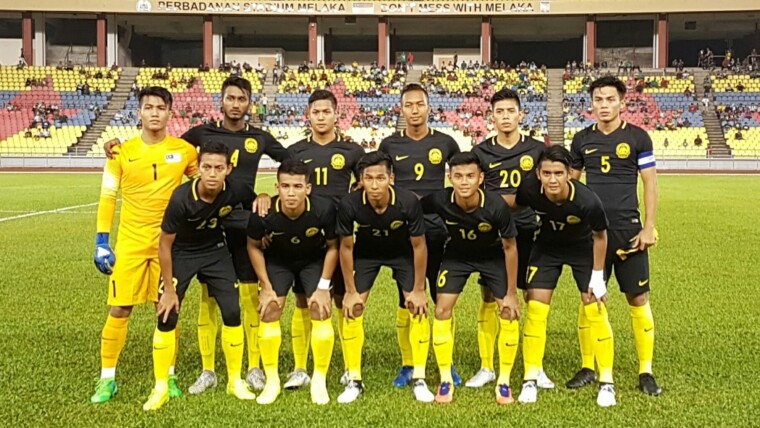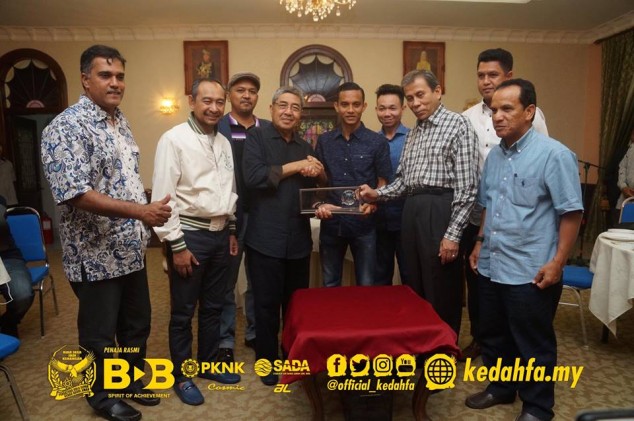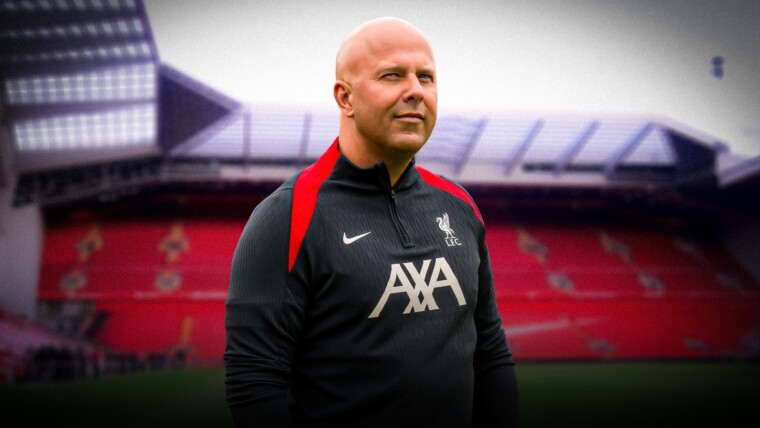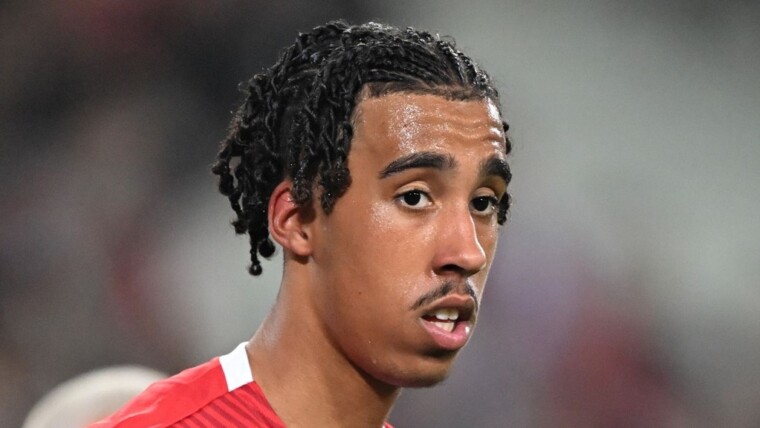Congratulations to Mohammed Faiz Subri, the Penang striker, on winning the FIFA Puskas Goal of the Year Award last Monday morning. The Award was in recognition of THAT wonderful, incredible, goal against Pahang on February 16th 2016. It’s true bliss to see positive publicity surrounding Malaysian football. It’s great to see THAT goal get credit for the phenomenal skill involved.
And don’t think for a minute THAT goal was a lucky one-off effort. Mohd. Faiz practices and practices free kicks all the time. That it came off as a once-in-a-lifetime goal in front of the live TV cameras was the reward for years of preparation. It was a brilliant goal and worthy of the FIFA Puskas Award as best goal in the world in 2016.
Note that he prepared for that moment. It was a free kick mastered as a result of years of practice as a kid and an adult, and now 10-years as a professional. No doubt there were numerous failed attempts on the training ground. He will have studied the way Ronaldo addresses the ball, how to strike across the ball to swerve it and the possible outcomes. Faiz prepared, practiced and ultimately executed the goal. The BEST goal in the world. It didn’t just happen. He prepared and practiced.
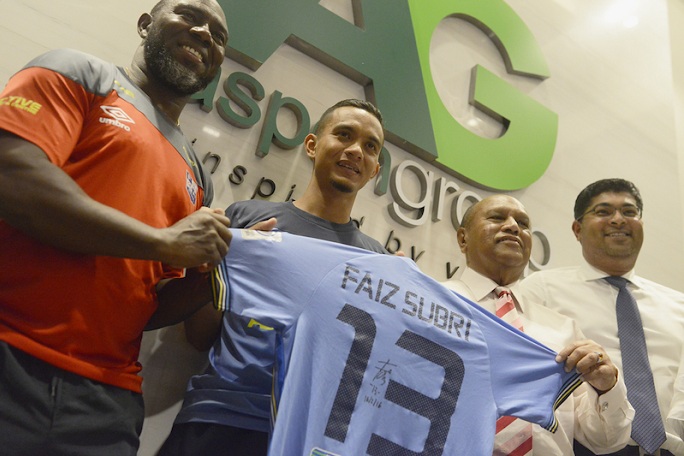
THAT goal makes Faiz Subri “box office”
Because of THAT beautiful goal – which we loved – we were entranced by the show at which Faiz Subri would appear to – we hoped – receive his award. The glitzy FIFA Awards show named “The Best”. We wondered how he’d cope. What he’d say. Malaysians would be beaming that Malaysian football was recognized Internationally.
Faiz Subri – like it or not – was box office. On a pedestal. At the time of the goal in February last year, he became an internet sensation. Penang’s Government awarded him RM 10,000 for enhancing the image of Penang to the World. News channel Astro Awani had special features on THAT goal, and Astro Hitz did an amusing re-enactment of the goal. It was big news at the time.
As “The Best” got closer, the Malaysian National press and TV united to campaign for the public to vote the goal as the best in the world. Harith Iskandar had worked the same magic to become the “Best Comedian in the World” just a month or so earlier, so why not help Faiz Subri’s goal be voted the best in the world? Penang FA and the FAM squabbled and eventually compromised for the right to pay for him and his family to go to the glitzy event in Zurich. Faiz Subri was box office.
Surely someone, somewhere, was advising him on the best way to deal with all this attention.

When Faiz came back having picked up the award, there was an official welcome for him. Not far off the welcome for the returning Olympic athletes. This was no ordinary moment. It’s not just about THE goal. It’s a sporting moment that has turned the spotlight on Mohd Faiz Subri. And on Malaysian football.
Why it can’t be just about THAT goal
“Can’t we just enjoy the goal”? The answer is, yes, we can enjoy the goal. But let me throw out these caveats.
Imagine that I’m a football fan in England. Or Germany. Or the United States. Or Beijing. Or any city or country in the world. Imagine that I watched THAT goal online – or on the TV. I’m inspired. I want to find out more about this “little known” Malaysian, Mohd. Faiz Subri. So I go to search online. He plays for Penang FA and so I click on the official Penang FA website. I’m sure I’ll find out all I need to know about Faiz there.
Guess what I find when I click onto the official Penang FA website’s first team squad page? “Page Under Construction”. One week before the 2017 league season starts, and four days after one of their players has won the award for Best Goal in the WORLD. And the official Penang FA website isn’t updated!
Never mind. There’s bound to be a page where I can find out about Faiz Subri on the Penang FA news page. Guess what. They don’t even carry the news that one of their players has won the FIFA Puskas Award. What message does this convey about Penang FA to someone from outside Malaysia?
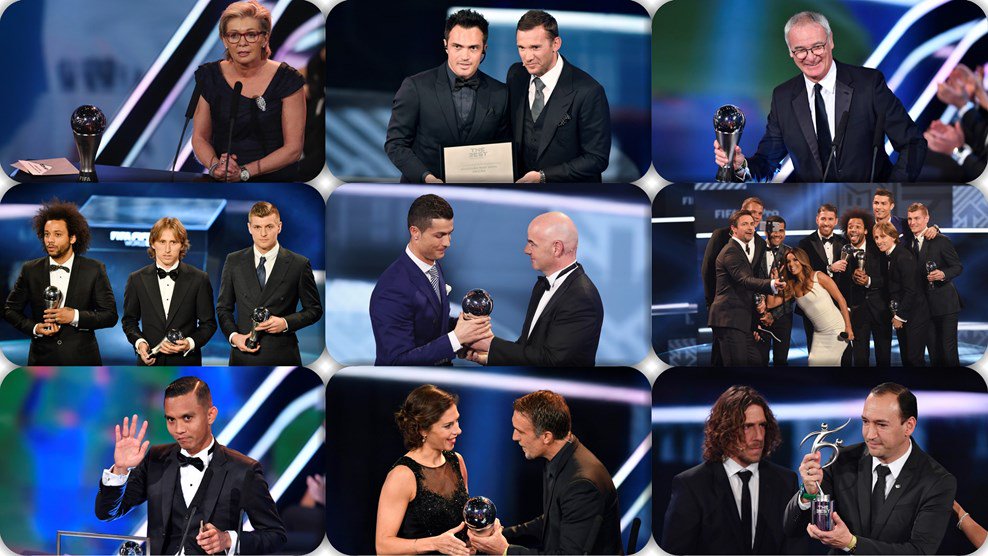
On the same news page there is an inspiring article from Dato’ Seri Nazir Ariff with the headline “What we build today will become tomorrow’s legacy. That’s why we’ll never compromise. Ever.”
Malaysia is renowned for having a vibrant social media scene. An online presence isn’t just good to have. It’s essential. So we keep hearing. Thankfully Wikipedia keep us up-to-date with Malaysian stats and data, and I get as good a fact file as I have seen on Faiz Subri from there. But there’s something is still missing. No detailed stats, facts or data about Faiz Subri’s performance last year.
Thankfully a link to The Football Malaysia League (FMLLP) is there and eventually I get the page that tells me Faiz wears no 13, played 23 times last season, scored 10 goals and received 2 yellow cards. Better than nothing. But that’s it. I am genuinely interested to know exactly HOW many games he played – especially after THAT goal; how many minutes and how many assists. But those sort of statistics aren’t readily available for Malaysian football.
As a comparison, when Jürgen Klopp announced Liverpool’s youngest ever starting line-up for the FA Cup tie game against Plymouth on Saturday, in minutes we were able to compare and find out the line up and average age of the previous youngest Liverpool team that played in an April 1965 match against Wolverhampton Wanderers; and when Wayne Rooney scored the goal that equalled the total scored for Manchester United by Sir Bobby Charlton, we dragged up stats for a Manchester United Anglo Italian Cup match against Verona involving Charlton from May 1973 that casts doubt on the record.

What does it say when I can access – in minutes – data from 1965 and 1973 for English football, but I can’t easily ascertain how many minutes Faiz Subri played for Penang in 2016? Or how many assists? Or the XI who played against Pahang. The stats may be out there somewhere, but not easy to find. Data is not kept of Malaysia’s biggest sport. What does that tell us about how we treat the local game?
So yes. I AM interested in the goal. As a result I wanted to find out more about Faiz Subri. And his stats. And his match performance data. And Penang. But it was hard to dig out anything really useful. We don’t compare well to the rest of the world.
Speaking to the press or in public; it’s part of the job description of a professional athlete.
At Astro Arena, one of the key ambitions when the late Matt McKeown kick-started the Channel in 2010 was to focus on “Malaysian athletes”. To make “the athlete” the star. To create local heroes. There was – and remains – a deliberate policy to put the athletes in front of the camera so they can tell their story. An important part of the process is that we not only see our athletes, but hear from them as well.
Mr. McKeown came from an Australian TV background where athletes are confident enough to talk on live TV and give real insight and opinions about their performances. You rarely – if ever – hear from the Minister for Sport in Australia. Same in the USA. Same in most countries that boast a sporting culture. Administrators and politicians are nothing compared to the athlete, and their athletes also tend to be confident – or at least competent – performers in front of the microphones.
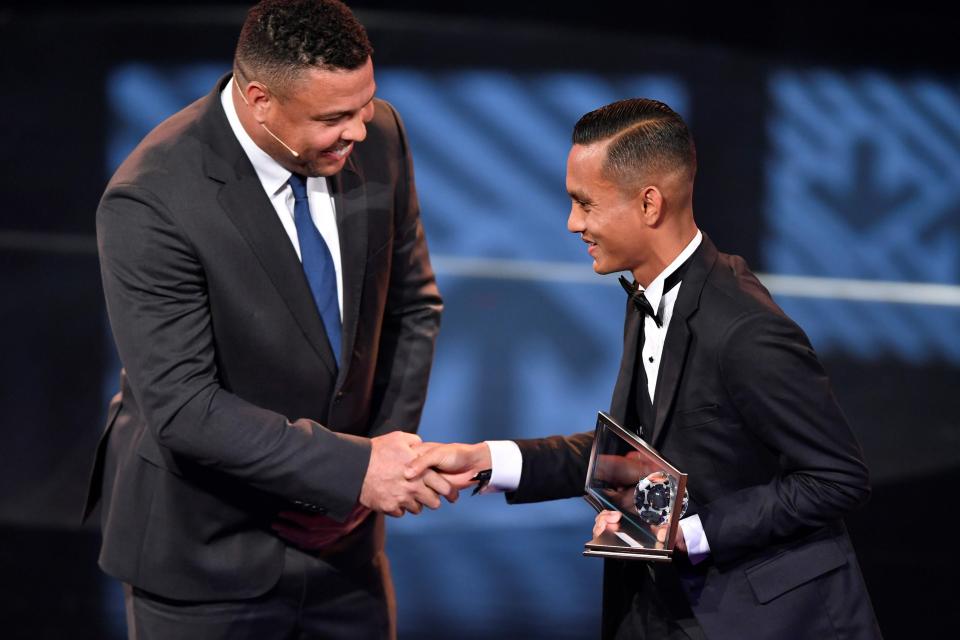
There’s no logical rationale to it, but it has been a constant challenge for Astro Arena reporters and producers that very few Malaysian athletes – even the most accomplished at their sport – have confidence to look you in the eye and speak into a microphone, or provide any real insight about their skills in a coherent way. Even in an environment when Malaysia’s sports journalists are some of the most athlete-friendly in the world.
There are some exceptions, of course. But not many. Some high-profile players have literally recoiled from a microphone thrust before them. Most offer monosyllabic answers to questions posed. One of Mr. McKeown’s ambitions was to try to help change this. The rationale was to try to at least give some preparation to help somebody like Faiz Subri cope with the kind of interview and public situations they may find themselves dealing with due to the quality of their skills.
It’s a recognised and acknowledged skill gap.
Faiz Subri’s acceptance speech
The live telecast of the FIFA The Best Awards saw an audience of more than 200,000 watch Live on Astro in Malaysia in the early hours of Monday morning. That is a huge audience. Faiz Subri when he spoke was incredibly humble, dignified and respectful in his acceptance speech. Faiz was clearly nervous, but while the occasion must have been an overwhelming experience, he got through it.
Mr. McKeown had a situation such as this in mind when trying to make Malaysian athletes comfortable in front of a microphone. Our athletes need to be made aware that they are likely to appear in public. They need to be prepared for such situations. It’s important because, one day, one of the athletes may be asked to make a speech in front of a 200,000 TV audience in Malaysia, and a global audience. This was that day.
When any person appears on a global stage, every word and each body movement will be examined. Because Faiz was on stage with Cristiano Ronaldo, Faiz will be compared with Cristiano Ronaldo – a man from a similarly humble background. It is not unreasonable to expect this to be the case.
That occasion happened on Monday morning, and – like it or not – Malaysia’s athlete in situ was not properly prepared to deal with it. And he should have been.
Nonetheless, Malaysia is fiercely proud of him. Faiz looked magnificently groomed and every inch an athlete. He spoke with humility and grew in confidence as the speech went on. Speaking – in his second language – Faiz thanked the “important” people, and didn’t say anything that could possibly offend anyone. Most of Malaysia was more than happy with that, and those who dared to comment were quickly and vocally shot down.
This was a world stage. A chance to impress. A chance to seize the day. A chance to showcase Malaysian football. Shouldn’t Malaysia expect more of its stars?
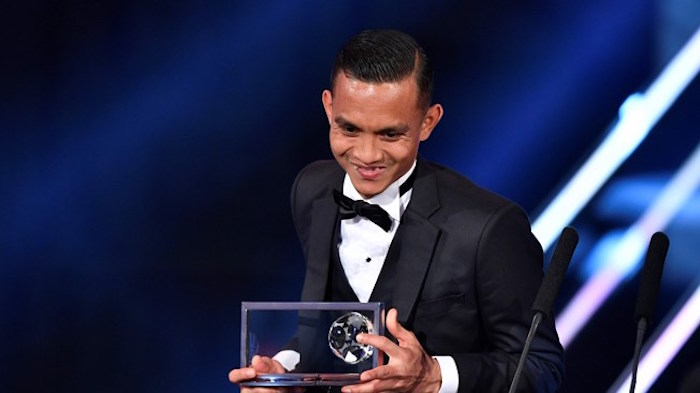
Did Faiz prepare?
If Faiz was a young lad suddenly and unexpectedly thrust into the limelight, then you could argue that the overwhelming situation before him couldn’t have been prepared for. But he isn’t, and he wasn’t.
This is an award for a goal that was scored over 11 months previously. There has been a lot of interest in his goal since then. It may well be the defining moment of his life.
Add to that there has been a concerted month long campaign in Malaysia to push for the public to vote for the brilliant goal. Television crews have dogged Faiz every step over the last two weeks from filming him at the tailors getting himself ready before he left for Zurich, to getting on the plane with him, talking to him in Zurich on arrival and essentially making him headline news. This is NOT something that has been suddenly thrust onto him.
The actual awards event isn’t a new. Astro have televised the FIFA Awards for years. It’s known that they are glitzy, celebrity-led occasions and that the winners have to make speeches. This is not an event that is “new” and unknown and cannot be prepared for. This is NOT something that had been suddenly thrust onto him.
When you add that Faiz – the player – is an experienced 29 year-old who has been good enough to be selected for international squads; has appeared in a Malaysia Cup Final, played before 85,000 people, and has been a full time professional footballer, in the public spotlight for nearly 10 years with some of the biggest clubs in the country, then is it not reasonable to expect a little more preparedness for the occasion?

Faiz is not a raw kid who feels intimidated by a big occasion. He is a grown man who has adorned huge occasions. He knows how to take pressure. He has proven that.
Add to that the fact that the player was escorted to the event by a senior member of the Football Association of Malaysia (FAM) who, surely, offered advice about pubic speaking. Surely Faiz went in prepared. FAM Vice President Dato’ Sri Hj Afandi Bin Hamzah is seen alongside Faiz when he receives the award and gives him a congratulatory hug. He’s there when Faiz is going along the red carpet into the awards ceremony. He’s gone along to the event to chaperone Faiz. To look after him. Dato’ Afandi is a very polished speaker in public himself and would – surely – have passed on tips.
And it wasn’t as though a speech hadn’t been prepared. As we saw with the excruciating 20-second delay as Faiz looked through his phone for the words to say, a speech had been pre-prepared.
Had Faiz rehearsed his words? Had he thought about them?
Did he think about public speaking and the fact that he would be seen on worldwide television?
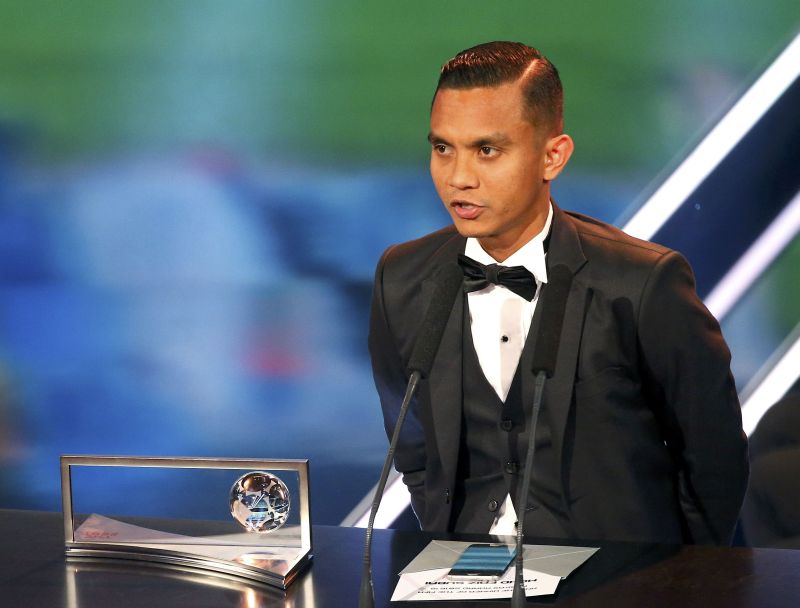
Did he think about what he would say, and how he would say it?
Did he, honestly, truly prepare for the biggest, most public moment of his life?
It’s not just about football
Earlier this week, there was a press launch to announce a partnership between Astro and the Badminton Association of Malaysia. At the Conference, there was a session where some of Malaysia’s top badminton stars came onto stage for a question and answer session.
Datuk Lee Chong Wei was first up, and spoke with confidence to the assembled audience. Then the microphone was passed around like a hot potato. Chan Peng Soon – a brilliant athlete and an Olympic silver medalist – didn’t want to speak. Peng Soon’s mixed doubled partner, Goh Liu Ying, took up the challenge and spoke clearly and confidently in Bahasa, but absolutely with reluctance. We’re not enquiring about personal relationships at this news conference – we’re celebrating a multi million ringgit investment in badminton.
Then Goh Jin Wei – World Girls singles Junior Champion in 2015 and a bright prospect for future success – actually turned away from the microphone when urged to speak.
And this was at an event celebrating a media partner investing hard cash in THEIR sport. For athletes, there is a need and a duty to be able to communicate – even in native language. American athletes have long mastered the ability to talk to the camera. The Malaysian athletes mentioned above are incredibly accomplished and talented sports people. They have a world audience that wants to listen.
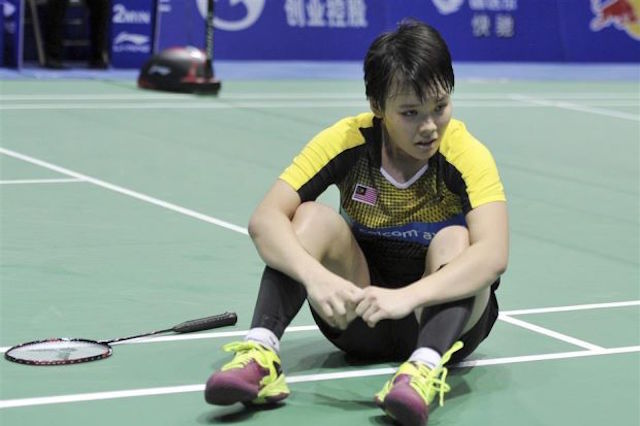
Another badminton example: Astro are covering the Badminton Purple League, where immediately after a match, players are interviewed on court. It is a deliberate policy both to get a feeling of how a game was won and lost, but also to prepare athletes for situations they will face if they ever succeed on the international stage.
Very few Malaysian shuttlers are comfortable with this. The on-site host has a difficult job to get anything worthwhile out of these interviews. Many answers are monosyllabic. If I ever hear the phrase “lost focus” again, I will scream. Every second answer seemed to use this phrase.
Some players actually pulled away from the microphone live on air. By contrast, Korean and Japanese shuttlers tended to be more forthcoming and confident to talk. The Dane, Anders Rasmussen, was a revelation in that he praised his partner and gave us information about how the match he played in was won. He was speaking his second language. It wasn’t how he spoke his words, it was what he said and his confidence in front of camera that added value.
Malaysian and other South and East Asian athletes seem reluctant to embrace this important public side of international sport. It’s important because one day–because of their talent–they may find themselves addressing a global audience and picking up a world-best award.
They ought to be prepared!
The words of the acceptance speech
And what of the choice of words in Faiz’ speech itself? Humbly delivered, and self-effacing, his parents and family, of course, deserved thanks. As do Penang, the club that pays his wages.
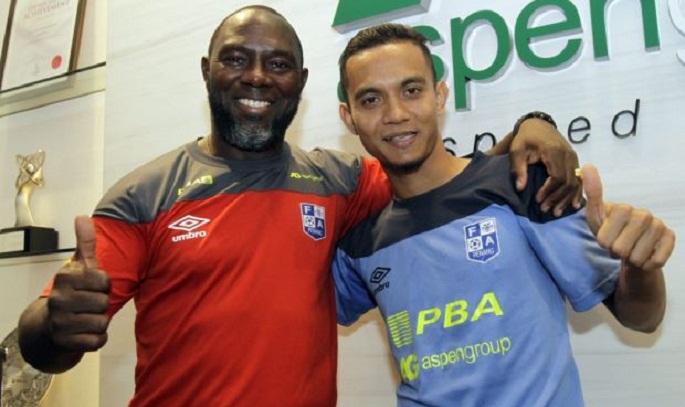
But why are the FAM being thanked? What did they have to do with ”the goal”? Player of the Year Cristiano Ronaldo makes no reference to either the Portuguese or Spanish FA’s. Why would he? Manager-of-the-Year Claudio Ranieri – ditto with the English and Italian FAs. Why would he? So why does Faiz need to?
And which Penang Coach is being thanked in Faiz’ speech? Jacksen Tiago – the one who signed him and was sacked after he scored his wonder goal? Or Nenad Bacina – the coach who benched him for a spell last season because he was clearly out of form? Or Ashley Westwood – his new boss who has hardly had a chance to see him train because he’s been so busy “preparing” for the FIFA Awards. Or someone else specific?
What he said is important. And it’s important because THAT goal has given the world a reason to look at Malaysian football. Its organization. Its teams and websites. And its characters.
Whilst in Malaysia we were busy following an official homecoming of the victorious Faiz, the rest of the world is recalling a wonderful goal. But they are also recalling an excruciating 20 second delay as Faiz searched for his speech on his handphone – a delay that forced the rather famous MC to interject on his behalf. The world is also reading a Daily Mail online headline (reportedly the most visited English language website in the World) of how Faiz “kept the world waiting” in what it described as a “comical interlude”. It’s not the imagery you want spread round the world.
Whilst staying humble, Faiz had a world stage. But unlike playing football, Faiz had never properly prepared for such a moment. And it seems nobody helped prepare him. Nobody stepped up to help him perform. And nobody had ever counselled him to know that he should have been better prepared.

Mohd. Faiz Subri did himself and his family proud. Mohd. Faiz Subri looked fabulous. Mohd. Subri was humble and did “as well as many people expected”. Much of Malaysia loved him.
But imagine, for a second, if Faiz had been confident enough, prepared enough, been rehearsed – even if in second language English – to look the camera in the eye and say that he was delighted that his goal had brought attention to Malaysian football. That we have a real passion for the sport in Southeast Asia. What a headline! What an impression! THAT would have made different headlines.
The world will remember the goal forever. But for a few weeks, the world will also recall the excruciating 20-second pause that caused the famous MC to step in on his behalf. A pause that was caused because Faiz Subri – unlike before his goal – was not properly prepared.
And for all these reasons, I argue that it can’t just be about THAT goal.
Other posts by Dez Corkhill


